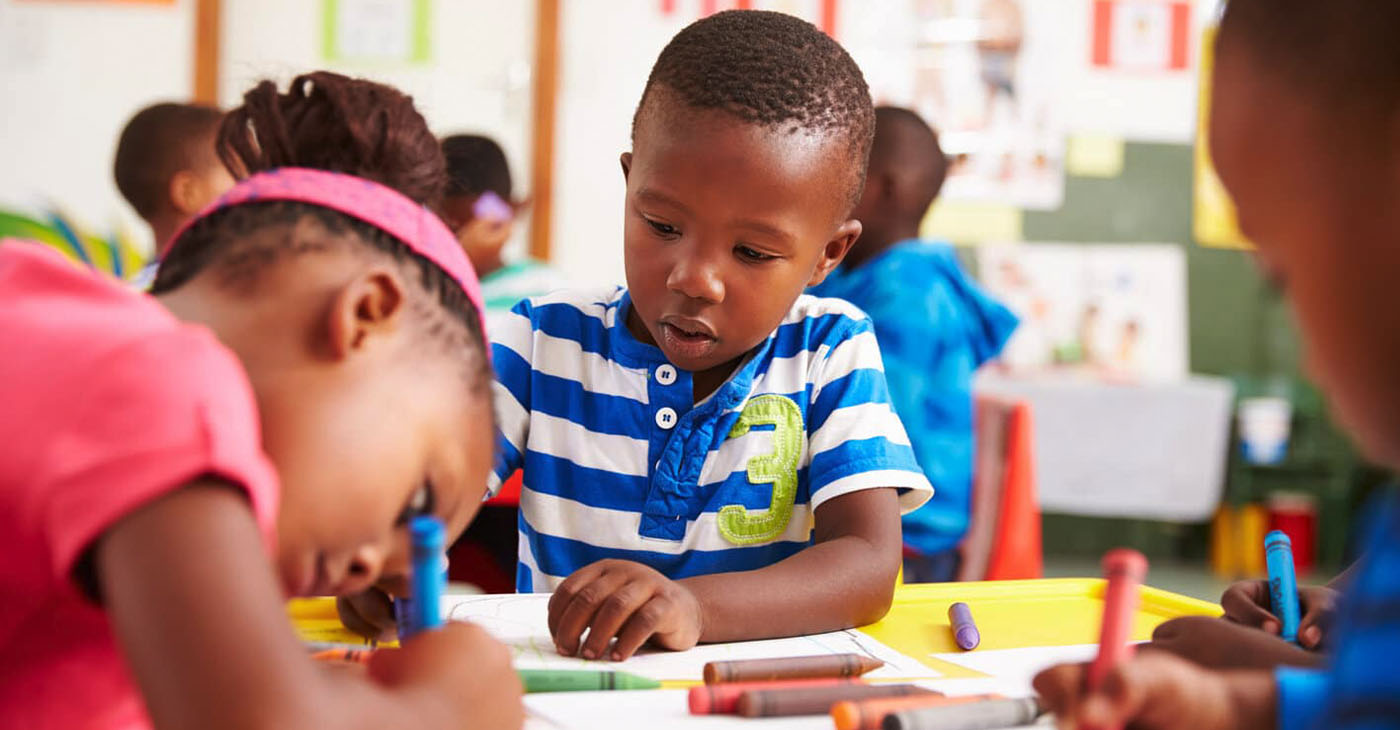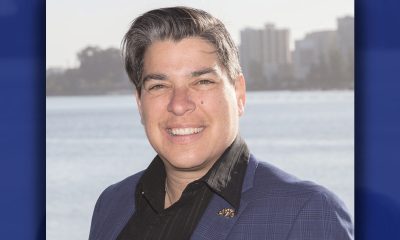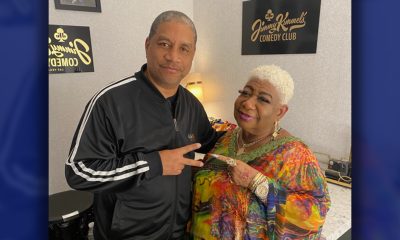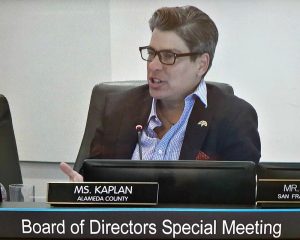#NNPA BlackPress
How Are We Doing Toward That Goal?
NNPA NEWSWIRE — NIEER just released its 2023 State of Preschool Yearbook, which annually tracks state-funded preschool enrollment, funding, and quality across states. This year’s report shows that during the 2022-2023 school year states enrolled over 1.63 million children in preschool, marking a 7% surge compared to the preceding year.
The post How Are We Doing Toward That Goal? first appeared on BlackPressUSA.


Editor’s note: The following is the second in a series of columns devoted to early childhood education and its role, value and importance to young children, families and all communities.
W. Steven Barnett, Ph.D., senior co-director, and founder, National Institute for Early Education Research
Despite strides in preschool enrollment across the country, access to quality early education remains inequitable and heavily skewed by geography, according to our new National Institute for Early Education Research (NIEER) analysis. State-by-state disparities in preschool access, quality, and funding are widening each year as some states take leaps forward while others still do not have a program. How each state chooses to move forward—and whether the federal government helps—will determine how much real progress is made in helping America’s three- and four-year-olds access quality preschool.
NIEER just released its 2023 State of Preschool Yearbook, which annually tracks state-funded preschool enrollment, funding, and quality across states. This year’s report shows that during the 2022-2023 school year states enrolled over 1.63 million children in preschool, marking a 7% surge compared to the preceding year. Preschool enrollment reached 35% of four-year-olds and 7% of three-year-olds, with state expenditures reaching $11.73 billion, an 11% increase from 2021-2022 when adjusted for inflation.
Despite progress, most states still need to catch up to their pre-pandemic level of preschool enrollment. We believe the research is crystal clear that children who attend high-quality preschools are better prepared when they enter kindergarten, laying a foundation for later success. However, programs must be high quality to deliver those results, and in 2024, states are more uneven than ever in their preschool funding and quality standards.
Every family should have the opportunity to enroll their three- and four-year-olds in a quality pre-k program, no matter where they live or their economic situation. We encourage state and federal leaders to help families gain access to high-quality, full day, adequately funded early learning opportunities that will help children develop and parents earn a living. Our new report finds that state-funded preschool programs have bounced back unevenly from the COVID-19 Pandemic. A record number of 16 states plus the District of Columbia are now committed to universal preschool, yet most of those states are far from reaching that goal. A key question for the future is whether states will increase investments enough to keep promises regarding program expansion and quality, including adequate pay for the workforce.
Across states, spending ranges from more than $16,000 per child to barely $2,000 per child. Only five states met all ten research-based minimum quality benchmarks recommended by NIEER (Alabama, Hawaii, Michigan, Mississippi, and Rhode Island). More than twice as many children attend preschool programs meeting fewer than half of NIEER’s quality standards benchmarks than programs meeting nine or 10. Legislators in several states are currently considering pre-k funding increases for the next fiscal year, including major proposals in Massachusetts and Michigan and a New Hampshire bill that would create a state-funded preschool program in that state.
Last month, Georgia state lawmakers approved a nearly $100 million package to make critical quality improvements while expanding the state’s lottery-funded pre-k program, including salary parity for pre-k lead and assistant teachers with K-12; capping class size at 20 children; and increasing classroom start-up grants. Our new report calls on the federal government to offer states financial incentives to support high-quality preschool education. Over the last 21 years, NIEER’s State of Preschool publications have found that red and blue states alike are increasingly prioritizing preschool yet struggling to pay for it. Given the long-term return on investment of quality preschool, helping states pay for quality preschool expansion should be an area of bipartisan consensus in Congress.
NIEER estimates an additional $30 billion could allow states to provide a quality full school-day preschool program to all four-year-olds. If the federal government increased support for preschool education to the states by just $1.5 billion per year over the next ten years, the federal government would cover half that cost in 10 years. “With the pandemic in the rearview, it’s time for state and federal leaders to choose whether and how they are going to support high-quality preschool,” said Allison Friedman-Krauss, Ph.D., the report’s lead author. “Will this be the turning point needed for the country to make real progress towards high-quality universal preschool? Will programs serve both three- and four-year-olds? Will investments be enough to ensure that programs are effective? Will states support an equitable mixed-delivery model for preschool incorporating both existing childcare programs and public schools? How will states recruit, support, and retain preschool teachers? These decisions will impact millions of children for years to come.”
W. Steven Barnett, Ph.D., is the senior co-director and founder of the National Institute for Early Education Research (www.nieer.org). His work primarily focuses on public policies regarding early childhood education, childcare, and child development. Barnett earned his Ph.D. in economics at the University of Michigan and has authored or co-authored more than 300 publications.
The post How Are We Doing Toward That Goal? first appeared on BlackPressUSA.
#NNPA BlackPress
OP-ED: The Illusion of Allyship. White Women, Your Yard Signs Mean Nothing to Me
NNPA NEWSWIRE – “The blue bracelets are something White women are wearing so others can see that they didn’t vote for Trump,” says Liberal Lisa from Oklahoma on X. Chile, bye. These bracelets are hollow symbols, empty gestures that mean nothing to me. An accessory to claim distance from Trump’s legacy is superficial comfort, while the choice to not stand with us in the voting booth is far more profound.

Political yard signs can symbolize intentions and allegiance. But this year, they’ve also symbolized betrayal. During this general election, Black women were led to believe that more White women would stand with us. Exit polls, however, told a different story. Despite overwhelming displays of support, more White women still chose to vote for the convicted felon, reality TV star, and rapist. White women answered the call but left us hanging at the polls.
A Familiar Disappointment
I live in DeKalb County, Georgia, and the abundance of Harris-Walz yard signs could’ve fooled me. But I’ve seen this before, back when Stacey Abrams ran for governor. White women showed up, put up signs, attended rallies, knocked on doors, and phone-banked. Yet, when it came time to vote, they let us down—not once but twice. I’ve been here for over 15 years, and if there’s one thing I know, it’s that political signs are symbols without weight.
In every election, I’ve talked with White women. Most aren’t the primary earners in their families and vote along party lines, aligning with the preferences of their fathers and husbands. These conversations reveal a reluctance to break from tradition, even when their votes affect women and certainly when their votes impact the lives of people who look like me.
The Illusion of Solidarity—Symbols Are Not Enough
On social media, I’m seeing White women posting pictures of blue bracelets to “prove” they didn’t vote for Trump. “The blue bracelets are something White women are wearing so others can see that they didn’t vote for Trump,” says Liberal Lisa from Oklahoma on X. Chile, bye. These bracelets are hollow symbols, empty gestures that mean nothing to me. An accessory to claim distance from Trump’s legacy is superficial comfort, while the choice to not stand with us in the voting booth is far more profound.
I’ve seen Black Lives Matter signs and black squares posted on Instagram to “prove” support for Black people, but we now know that was a lie, too. Will those same people who claimed Black lives mattered now take down their Harris-Walz signs and show their true selves?
Navigating these truths is a daily struggle for me—professionally and socially. White women often misuse their privilege, supporting us only when it’s convenient. Seeing overqualified Black women sabotaged or abandoned by White women at critical moments is a constant emotional challenge. It’s exhausting to live with this reality, especially when solidarity seems like something they pick up and discard at will.
One clever campaign ad from Harris-Walz that spoke directly to White women. “Your Vote, Your Choice” emphasized that their vote was private—independent of their household situation. Another was from Olivia Howell Dreizen, the “Vote Without Fear” campaign, which empowered women to consider the greater impact of their choices. But it seems many still couldn’t choose the roadmap to freedom—even when it was handed to them.
A Call for Action Beyond Words
White women, I want to believe you care, but actions speak louder than yard signs, bracelets, or Instagram posts. Show up in our communities, advocate in your workplaces, and stand up to dismantle the structures that uphold white supremacy. Only through real action will we know where you stand.
If you choose not to act, we see you—and we know exactly where you stand. Good luck these next four years.
Disclaimer: The views and opinions expressed in this article do not necessarily reflect the official policy or position of BlackPressUSA.com or the National Newspaper Publishers Association.
#NNPA BlackPress
Supernova Parenting Conference Empowers Over 100 Parents with Resources for Neurodivergence and Mental Health
The inaugural Supernova Parenting Conference was co-hosted by Natasha Nelson, known as Supernova Momma, and Yolanda Walker, founder of Parenting Decolonized. It brought together over 100 parents, caregivers, and educators dedicated to fostering understanding and support for neurodivergent children and mental health challenges. The conference provided invaluable resources, expert insights, and a collaborative space for […]

The inaugural Supernova Parenting Conference was co-hosted by Natasha Nelson, known as Supernova Momma, and Yolanda Walker, founder of Parenting Decolonized. It brought together over 100 parents, caregivers, and educators dedicated to fostering understanding and support for neurodivergent children and mental health challenges. The conference provided invaluable resources, expert insights, and a collaborative space for connection, marking a significant step toward creating a more inclusive parenting community.
The event featured a variety of workshops, panel discussions, and keynote speeches from leading experts in neurodiversity and mental health. Attendees left with practical tools and strategies to enhance their parenting journeys, emphasizing the importance of understanding and supporting the unique needs of neurodivergent children.
“While the conference was a tremendous success, we believe that our work doesn’t end here,” said Natasha Nelson. “It’s crucial to continue providing ongoing support and resources for parents as they navigate this important journey. We want to ensure families can access the tools they need long after the conference.”
To extend the momentum generated at the conference, Natasha and Yolanda are excited to announce the launch of the Supernova Parenting Community. This membership-based initiative aims to offer a safe and supportive environment for parents and caregivers to continue their growth as conscious parents.
Membership is available for as little as $5 a month via Patreon, making it accessible for all families seeking support.
“We know that parenting can be a challenging journey, especially when navigating neurodivergence and mental health issues,” Yolanda Walker added. “Our goal is to build a community where parents feel seen, heard, and supported. We hope you’ll join us in this vital work.”
For more information about the Supernova Parenting Community and to sign up for membership, please visit supernovaparenting.org
#NNPA BlackPress
Election Night on The Yard at Howard University
Election Night on The Yard at Howard University
-

 Alameda County3 weeks ago
Alameda County3 weeks agoAlameda County District Attorney Pamela Price Announces $7.5 Million Settlement Agreement with Walmart
-

 Activism2 weeks ago
Activism2 weeks ago‘Jim Crow Was and Remains Real in Alameda County (and) It Is What We Are Challenging and Trying to Fix Every Day,’ Says D.A. Pamela Price
-

 Activism4 weeks ago
Activism4 weeks agoOP-ED: Hydrogen’s Promise a Path to Cleaner Air and Jobs for Oakland
-

 Bay Area3 weeks ago
Bay Area3 weeks agoIn the City Attorney Race, Ryan Richardson Is Better for Oakland
-

 Activism2 weeks ago
Activism2 weeks agoOakland Post: Week of October 30 – November 5, 2024
-

 Business4 weeks ago
Business4 weeks agoHarris Promises 1 Million Forgivable Loans for Black Businesses
-

 Business4 weeks ago
Business4 weeks agoStudy Confirms California’s $20/Hour Fast Food Wage Raises Pay Without Job Losses
-

 Community4 weeks ago
Community4 weeks agoTerry T. Backs Oakland Comedy Residency by Oakland’s Luenell at Jimmy Kimmel’s Comedy Club in Las Vegas



















































